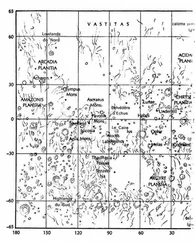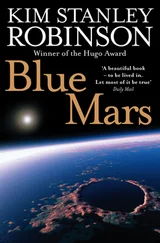Kim Robinson - Blue Mars
Здесь есть возможность читать онлайн «Kim Robinson - Blue Mars» — ознакомительный отрывок электронной книги совершенно бесплатно, а после прочтения отрывка купить полную версию. В некоторых случаях можно слушать аудио, скачать через торрент в формате fb2 и присутствует краткое содержание. Год выпуска: 1996, ISBN: 1996, Издательство: Spectra/Bantam Dell/Random House, Жанр: Космическая фантастика, на английском языке. Описание произведения, (предисловие) а так же отзывы посетителей доступны на портале библиотеки ЛибКат.
- Название:Blue Mars
- Автор:
- Издательство:Spectra/Bantam Dell/Random House
- Жанр:
- Год:1996
- ISBN:0-553-10144-7
- Рейтинг книги:3 / 5. Голосов: 1
-
Избранное:Добавить в избранное
- Отзывы:
-
Ваша оценка:
- 60
- 1
- 2
- 3
- 4
- 5
Blue Mars: краткое содержание, описание и аннотация
Предлагаем к чтению аннотацию, описание, краткое содержание или предисловие (зависит от того, что написал сам автор книги «Blue Mars»). Если вы не нашли необходимую информацию о книге — напишите в комментариях, мы постараемся отыскать её.
Green Mars
The Martian Chronicles
Dune
Piblishers Weekly st
Blue Mars — читать онлайн ознакомительный отрывок
Ниже представлен текст книги, разбитый по страницам. Система сохранения места последней прочитанной страницы, позволяет с удобством читать онлайн бесплатно книгу «Blue Mars», без необходимости каждый раз заново искать на чём Вы остановились. Поставьте закладку, и сможете в любой момент перейти на страницу, на которой закончили чтение.
Интервал:
Закладка:
Michel said, “I doubt it will satisfy her.”
This Sax fully believed. But for the moment he was distracted by thinking how best to compensate for the loss of the soletta’s light. It would be better not to have any biomes suffering great losses. If he had his way, those fellfields were just something Ann was going to have to get used to.
It was Ls 123, right in the middle of the northern summer/southern winter, near aphelion, which along with higher elevation caused the south’s winter to be much colder than the north’s; temperatures regularly dipped to 230 K, not much warmer than the primal colds that had existed before their arrival. Now, with the soletta and annular mirror gone, temperatures would drop further still. No doubt the southern highlands were headed for a record winterkill.
On the other hand, a lot of snow had already fallen in the south, and Sax had gained a great respect for snow’s ability to protect living things from cold and wind. The sub-nivean environment was quite stable. It could be that a drop in light, and subsequently in surface temperature, would not do that much harm to snowed-over plants, already shut down by their winter hardening. It was hard to say. He wanted to get into the field and see for himself. Of course it would be months or perhaps years before any difference would be quantifiable. Except in the weather itself, perhaps. And weather could be tracked merely by watching the meteorological data, which he was already doing, spending many hours in front of satellite pictures and weather maps, watching for signs. It made for a useful diversion when people came by to remonstrate with him for removing the mirrors, an event so common in the week following the event that it became tiresome.
Unfortunately weather on Mars was so variable that it was difficult to tell if the removal of the big mirrors was affecting it or not. A very sad admission of the state of their understanding of the atmosphere, in Sax’s opinion. But there it was. Martian weather was a violent semichaotic system. In some ways it resembled Earth’s, not surprising given that it was a matter of air and water moving around the surface of a spinning sphere: Coriolis forces were the same everywhere, and so here as on Earth there were tropical easterlies, temperate westerlies, polar easterlies, jet-stream anchor points and so on; but that was almost all one could say for sure about Martian weather. Well — you could say that it was colder and drier in the south than in the north. That there were rain shadows downwind of high volcanoes or mountain chains. That it was warmer near the equator, colder at the poles. But this sort of obvious generalization was all that they could assert with confidence, except for some local patterns, although most of those were subject to lots of variation — more a matter of highly analyzed statistics than lived experience. And with only fifty-two m-years on record, with the atmosphere thickening radically all the while, with water being pumped onto the surface, etc., etc., it was actually fairly difficult to say what normal or average conditions might be.
Meanwhile, Sax found it hard to concentrate there on east Pavonis. People kept interrupting him to complain about the mirrors, and the volatile political situation lurched along in storms as unpredictable as the weather’s. Already it was clear that removing the mirrors had not placated all the Reds; there were sabotages of terraforming projects almost every day, and sometimes violent fights in defense of these projects. And reports from Earth, which Sax forced himself to watch for an hour a day, made it clear that some forces there were trying to keep things the way they had been before the flood, in sharp conflict with other groups trying to take advantage of the flood in the same way the Martian revolutionaries had, using it as a break point in history and a springboard to some new order, some fresh start. But the metanationals were not going to give up easily, and on Earth they were entrenched, the order of the day; they were in command of vast resources, and no mere seven-meter rise in sea level was going to push them off stage.
Sax switched off his screen after one such depressing hour, and joined Michel for supper out in his rover.
“There’s no such thing as a fresh start,” he said as he put water on to boil.
“The Big Bang?” Michel suggested.
“As I understand it, there are theories suggesting that the — the dumpiness of the early universe was caused by the earlier — dumpiness of the previous universe, collapsing down into its Big Crunch.”
“I would have thought that would crush all irregularities.”
“Singularities are strange — outside their event horizons, quantum effects allow some particles to appear. Then the cosmic inflation blasting those particles out apparently caused small clumps to start and become big ones.” Sax frowned; he was sounding like the Da Vinci theory group. “But I was referring to the flood on Earth. Which is not as complete an alteration of conditions as a singularity, by any means. In fact there must be people down there who don’t think of it as a break at all.”
“True.” For some reason Michel was laughing. “We should go there and see, eh?”
As they finished eating their spaghetti Sax said, “I want to get out in the field. I want to see if there are any visible effects of the mirrors going away.”
“You already saw one. That dimming of the light, when we were out on the rim…” Michel shuddered.
“Yes, but that only makes me more curious.”
“Well — we’ll hold down the fort for you.”
As if one had to physically occupy any given space in order to be there. “The cerebellum never gives up,” Sax said.
Michel grinned. “Which is why you want to go out and see it in person.”
Sax frowned.
Before he left, he called Ann.
“Would you like to, to accompany me, on a trip to south Tharsis, to, to, to examine the upper boundary of the areobiosphere, together?”
She was startled. Her head was shaking back and forth as she thought it over — the cerebellum’s answer, some six or seven seconds ahead of her conscious verbal response: “No.” And then she cut the connection, looking somewhat frightened.
Sax shrugged. He felt bad. He saw that one of his reasons for going into the field had to do with getting Ann out there, showing her the rocky first biomes of the fellfields himself. Showing her how beautiful they were. Talking to her. Something like that. His mental image of what he would say to her if he actually got her out there was fuzzy at best. Just show her. Make her see it.
Well, one couldn’t make people see things.
He went to say good-bye to Michel. Michel’s entire job was to make people see things. This was no doubt the cause of the frustration in him when he talked about Ann. She had been one of his patients for over a century now and still she hadn’t changed, or even told him very much about herself. It made Sax smile a little to think of it. Though clearly it was vexing for Michel, who obviously loved Ann.
As he did all his old friends and patients, including Sax. It was in the nature of a professional responsibility, as Michel saw it — to fall in love with all the objects of his “scientific study.” Every astronomer loves the stars. Well, who knew. Sax reached out and clasped Michel’s upper arm, who smiled happily at this un-Sax-like behavior, this “change in thinking.” Love, yes; and how much more so when the object of study consisted of women known for years and years, studied with the intensity of pure science — yes, that would be a feeling. A great intimacy, whether they cooperated in the study or not. In fact they might even be more beguiling if they didn’t cooperate, if they refused to answer any questions at all. After all if Michel wanted questions answered, answered at great length even when they weren’t asked, he always had Maya, Maya the all-too-human, who led Michel on a hard steeplechase across the limbic array, including throwing things at him, if Spencer was to be believed. After that kind of symbolism, the silence of Ann might prove to be very endearing. “Be careful,” Michel said: the happy scientist, with one of his areas of study standing before him, loved like a brother.
Читать дальшеИнтервал:
Закладка:
Похожие книги на «Blue Mars»
Представляем Вашему вниманию похожие книги на «Blue Mars» списком для выбора. Мы отобрали схожую по названию и смыслу литературу в надежде предоставить читателям больше вариантов отыскать новые, интересные, ещё непрочитанные произведения.
Обсуждение, отзывы о книге «Blue Mars» и просто собственные мнения читателей. Оставьте ваши комментарии, напишите, что Вы думаете о произведении, его смысле или главных героях. Укажите что конкретно понравилось, а что нет, и почему Вы так считаете.












